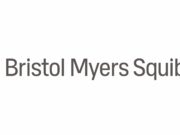Washington, DC – After seven years, a Connecticut court will finally rule on a First Amendment challenge brought by two former General Assembly candidates who were fined for championing their efforts to oppose the governor’s agenda in mailers. A decision handed down late yesterday by the Connecticut Supreme Court resolved a dispute over the timeliness of the appeal and ordered the case to go forward.
“The Court recognized that it was unfair to penalize our clients, and to deny them the opportunity to defend their constitutional rights, for timing their appeal from the Commission’s actual decision rather than its earlier failure to make a decision. We look forward to reaching the merits of the case: whether Connecticut can violate the First Amendment by prohibiting campaigns from referencing candidates other than their opponents,” said Institute for Free Speech Senior Attorney and Deputy Vice President for Litigation Owen Yeates, who represents the candidates in the appeal.
Former state senator Joe Markley and current state senator Rob Sampson were fined $2,000 and $5,000, respectively, over campaign mailers promoting the candidates as opponents of then-governor Dannel Malloy’s budget and tax policies in 2014. Acting on a complaint filed by Sampson’s opponent, the State Elections Enforcement Commission ruled that the mailers constituted an illegal expenditure on behalf of the governor’s opponent and, after several delays, denied the candidates’ petition for reconsideration of that ruling. With the help of the Institute for Free Speech, the candidates filed a lawsuit arguing that the fines, and the law they were based on, violate the First Amendment.
The Commission argued, however, that the candidates appealed too late under state law. A trial court agreed, ruling that the time to appeal started after 25 days of nonaction by the Commission, rather than from its final decision denying reconsideration. Markley and Sampson turned to the courts only after they had exhausted their options with the Commission and had an actual denial to appeal.
The Connecticut Supreme Court explained in its decision that dismissing the case would “effectively penalize the plaintiffs for the commission’s mistake” and remanded to the Superior Court for further proceedings. That court will now consider the candidates’ constitutional challenge to two provisions of Connecticut law: a prohibition on the use of public campaign funds to speak about a non-opposing candidate and a separate prohibition on the use of any campaign funds to speak about a non-opposing candidate.
Both provisions directly violate the First Amendment, which prohibits limits on a candidate’s speech. Here the state has done so to prevent the mere possibility that one candidate’s speech may affect another’s campaign. Yet contrasting a candidate’s views with those of other candidates is one of the best ways to communicate their positions to voters. Provisions restricting this speech are unconstitutional and should be struck down.
To read the Connecticut Supreme Court’s ruling, click here. For more information about the case, click here.
About the Institute for Free Speech
The Institute for Free Speech is a nonpartisan, nonprofit 501(c)(3) organization that promotes and defends the First Amendment rights to freely speak, assemble, publish, and petition the government. Originally known as the Center for Competitive Politics, it was founded in 2005 by Bradley A. Smith, a former Chairman of the Federal Election Commission. The Institute is the nation’s largest organization dedicated solely to protecting First Amendment political rights.














